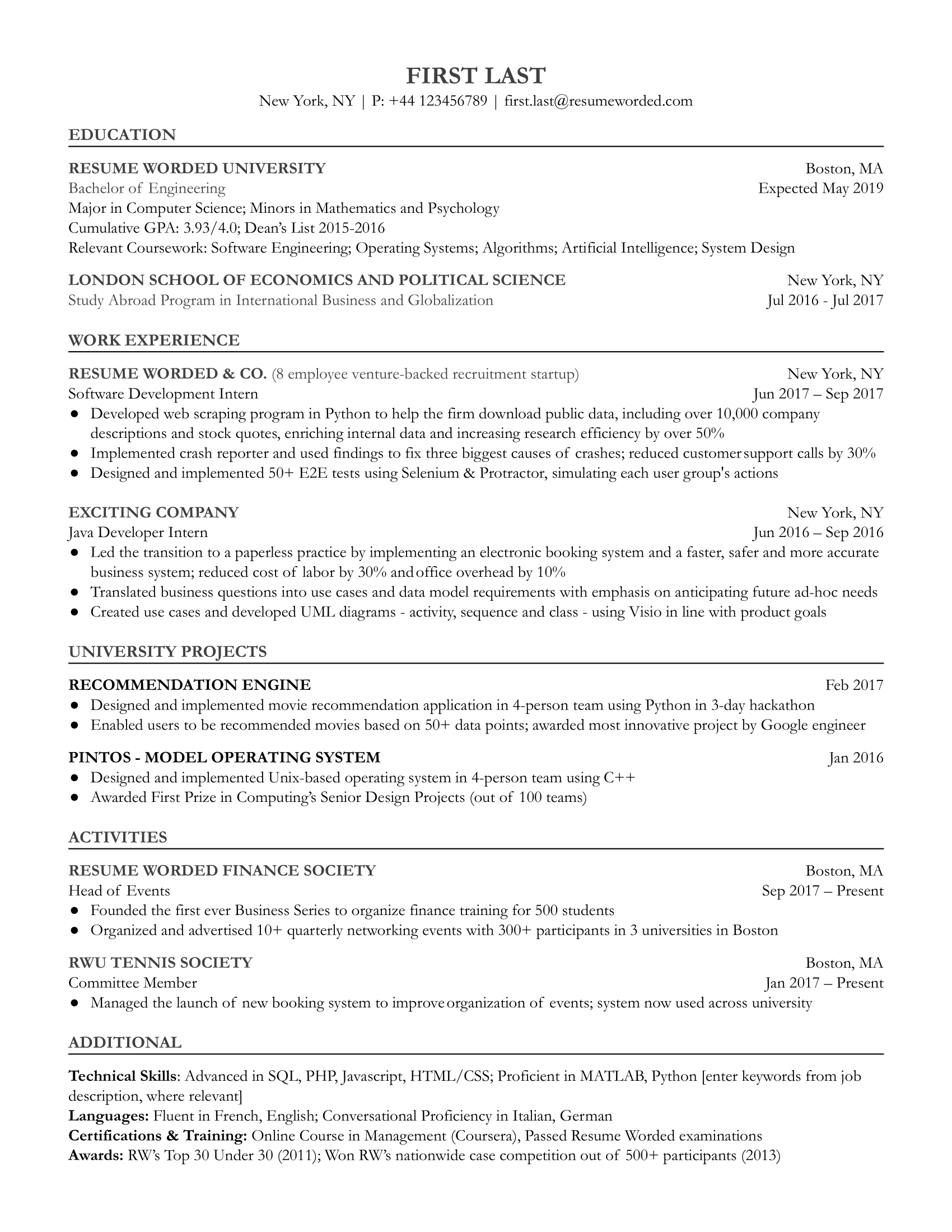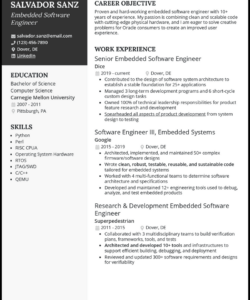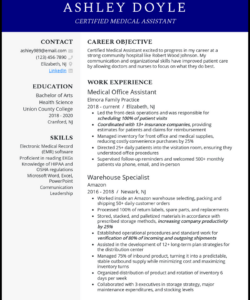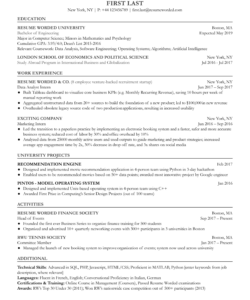So, you’re ready to dive into the exciting world of software development, but you’re wondering how to make your first big impression? Landing that initial entry-level role can feel like navigating a complex algorithm, especially when you don’t have years of industry experience to lean on. Your resume isn’t just a document; it’s your personal marketing tool, designed to showcase your potential and passion for coding.
That’s where a well-crafted entry level software developer resume template comes in. It’s not about filling pages with fluff, but rather strategically highlighting your skills, projects, and educational background in a way that truly grabs a recruiter’s attention. Think of it as your first line of code in securing your dream job – it needs to be clean, efficient, and impactful.
Building the Core Sections of Your Resume
When you’re putting together your entry-level resume, think about what recruiters are really looking for. They want to see your aptitude, your foundational knowledge, and your enthusiasm for learning and growing. Forget about cramming every single detail onto the page; instead, focus on clarity and relevance. Start with your contact information, ensuring it’s accurate and professional, followed by a strong summary or objective statement that immediately tells them who you are and what you aim to achieve.

Showcasing Your Technical Prowess and Projects
This is where an entry level software developer resume template truly shines – by providing dedicated space for your technical skills and, more importantly, your projects. Don’t just list technologies; think about how you’ve applied them. For your skills section, categorize them clearly: programming languages (Python, Java, C++), frameworks (React, Angular, Node.js), databases (SQL, MongoDB), and tools (Git, Docker). Be honest about your proficiency levels, but don’t undersell yourself.
Your projects section is arguably the most critical part of an entry-level resume. Since you might not have extensive professional experience, your projects demonstrate your ability to apply your knowledge in practical scenarios. Don’t just list project names. For each project, briefly describe:
- What problem it solved or what it aimed to achieve.
- Which technologies you used.
- Your specific role and contributions.
- Any measurable outcomes or successes (e.g., “improved loading time by 20%”).
Include links to your GitHub repository or a live demo if possible. This allows hiring managers to see your code and the final product firsthand, which speaks volumes about your capabilities. Even academic projects, personal side projects, or contributions to open-source initiatives are valuable here.
Lastly, ensure your education section clearly lists your degree, major, university, and graduation date. If your GPA is particularly strong (above 3.5), it’s worth including. You can also mention relevant coursework or academic achievements that align with software development. If you’ve completed any bootcamps or certifications, this is the place to highlight them too.
Optimizing Your Resume for Success
Once you have the core content down, the next step is to optimize your resume to ensure it gets noticed. In today’s competitive job market, many companies use Applicant Tracking Systems (ATS) to filter resumes before a human even sees them. This means your resume needs to be keyword-rich and well-formatted to pass through these initial hurdles. Use keywords found in job descriptions you’re applying for, naturally integrating them into your skills, project descriptions, and summary.
Beyond ATS, think about the human element. Recruiters often spend mere seconds scanning a resume. Make it easy for them to find the most important information. Use clear headings, bullet points, and consistent formatting. Avoid overly complex fonts or crowded layouts. A clean, professional, and easy-to-read design will always win over a flashy, confusing one. Proofread meticulously for any typos or grammatical errors – these can instantly undermine your credibility.
Consider adding a “soft skills” section or incorporating them into your project descriptions. Skills like problem-solving, teamwork, communication, and adaptability are highly valued in the tech industry. Even if you haven’t held a formal software development role, you likely have examples of these skills from academic group projects, volunteer work, or even extracurricular activities. Think about how you can demonstrate these attributes through your experiences.
Finally, remember that a resume is a living document. It should evolve as you gain more experience and skills. Tailor your resume for each job application, highlighting the experiences and skills most relevant to that specific role. Don’t just send out a generic version; a personalized resume shows genuine interest and makes a stronger case for why you are the ideal candidate for that particular position.
Landing your first software development role is an exciting milestone, and your resume is your initial handshake with potential employers. By focusing on your core technical abilities, showcasing your projects, and presenting everything in a clear, compelling manner, you significantly increase your chances of standing out.
Take the time to refine each section, gather feedback from peers or mentors, and customize your document for every opportunity. Your diligence in preparing this vital tool will undoubtedly pay off as you embark on your professional journey in the dynamic field of software engineering.


